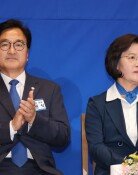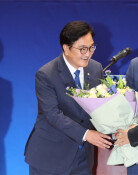Islam Wins Over Secularism In Turkey
Turkeys general election, which generated interest as a race between a ruling pro-Islamic party and its secular opposition, resulted in a victory for Islam yesterday. In the general elections which took place on July 22, the ruling pro-Islamist Justice and Development Party (AKP) received 46.8% of the overall vote, ensuring 340 out of a total of 550 parliamentary seats to succeed in taking power once again.
The secular opposition, the Republican Peoples Party (CHP), won 20.6% of the vote, securing 110 seats, while the far-right Nationalist Action Party (MHP) received 14.3% of the vote, winning only 72 seats. Although the AKP showed a higher poll rate than five years ago when they secured 352 seats by winning 35% of the vote in the 2002 general election, their number of seats in parliament decreased. This is because Turkeys election system distributes parliamentary seats only to parties that receive more than 10% of the vote. In 2002, only two parties won more than 10%, while the number of parties rose to three in this election.
There is a higher possibility that pro-Islamic policies will be strengthened as the AKP can form an independent government without a coalition with the secular opposition party. However, the AKP failed to win the 367 seats it needed to amend the constitution; therefore, it appears that they will face difficulty when attempting to change the presidential election process from an indirect parliament election system to a direct presidential election system. Local media attribute the ruling partys landslide victory to stable economic growth and hopes for joining the European Union (EU).
Turkeys economy, which was going through hard times under the supervision of the International Monetary Fund (IMF), showed an annual economic growth average of 7.3% after Prime Minister Recep Tayyip Erdogan came to power in 2002. Prices of commodities were also stabilized. The fact that Erdogan has started negotiations to be admitted into the EU has also further raised expectations for the development of the nation. In a speech after the general election victory was confirmed, Erdogan pledged to, Continue the efforts to join the EU and pursue democratic reform and economic development.
However, if the AKP demolishes the long-held tradition of secularism in Turkey, their greatest task will be to resolve the discord with secular power groups, such as the opposition party, military authorities, and legal circles, which have all strongly opposed the current government. There are also many difficult issues to deal with, such as armed clashes with Kurd rebels.
Meanwhile, 24 out of the 28 elected independent candidates are Kurdish; therefore, Kurds are likely to gain more say in parliament.
redfoot@donga.com







